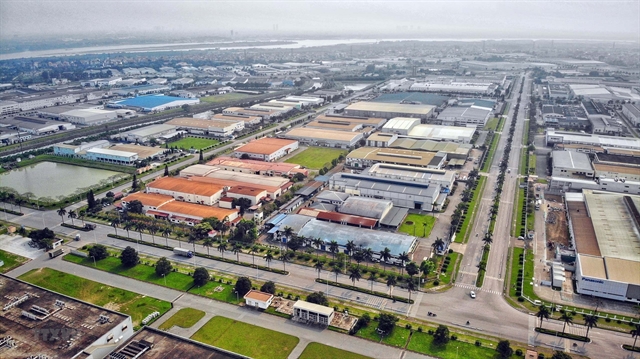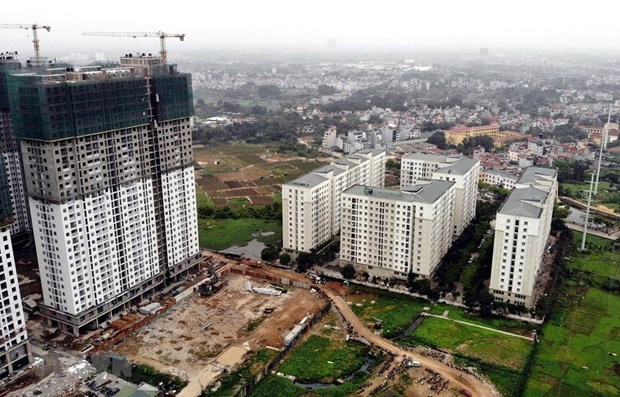Genuine estate market relies on demand
The real estate market could clear liquidity quickly due to house demand. This motive requires legislative assistance, notably for housing loans.

In recent years, the real estate market in many regions, notably in large cities like Hanoi and Ho Chi Minh City, has seen a constant price rise, preventing many individuals with genuine housing requirements from purchasing affordable houses.
Numerous experts have noted that the structure of real estate goods is out of sync, as the shopping cart is dominated by unsuitable items for consumers' budgets. This is also a contributing factor to the fast decline in liquidity when the market is volatile.
According to Nguyen Nam Hien, chairman of VPCORP, the real estate market will undergo a purification phase in 2023 and discover its genuine worth. Demand for housing remains high, particularly in the medium-market category, which meets the demands of the vast majority of clients. Especially in Ho Chi Minh City's outlying towns, possibilities will arise for investors and those with genuine housing requirements.
This year, according to Hien, mid-priced homes continue to dominate the market. This will continue to be the most anticipated and accepted segment of the market, as it will solve the issue of settlement for several clients, not only in large cities such as Ho Chi Minh City but also in many regions and other suburban areas where the population, specialists, and labourers are concentrated in industrial zones such as Binh Duong, Dong Nai, and Long An.
To get output, businesses must study thoroughly, adjust themselves, and establish clear objectives and strategies. In addition to housing for the wealthy, it is vital to concentrate on providing homes for those with ordinary earnings.
According to Nguyen Van Dinh, president of the Vietnam Association of Realtors, the majority of real estate market inventory goods are now in the luxury class. These items lack high liquidity since they are unsuitable for the majority of customers' budgets nowadays.
The $1.28 billion aid package, according to Dinh, has left an important lesson. This amount was negligible in comparison to the market at the time. Nonetheless, this legislation has prompted several projects to shift from the luxury housing category to the affordable housing segment, therefore fostering market growth.
"The policy does not have a direct effect on liquidity, but it has given the market new paths that are fit for consumers' budgets and their demands," Dinh said.
Real housing demand and the opportunity to purchase a first house are likely the most important factors supporting market liquidity based on the actual events of the preceding crisis.
Cushman & Wakefield reported in late 2022 that a key trend in the near future would be the expansion of social housing and cheap housing, with around 2.5 million square metres of social housing created for low-income individuals before 2025. Currently, however, both buyers and investors prefer to wait until 2023 to make a choice.
According to Le Hoang Chau, chairman of the Ho Chi Minh City Real Estate Association, the current atypical situation makes it difficult for individuals and businesses to obtain loans for the development of projects and the creation of housing and requires the state to issue atypical solutions for prompt and effective handling.
As stipulated in Clause 5 and Article 7 of the 2014 Law on Real Estate Business, the state must implement methods and regulations to stabilise the real estate market in the event of oscillations, therefore protecting the interests of investors and clients.
Specifically, the State Bank should consider presenting to the Prime Minister for approval a number of short-term credit assistance initiatives to be implemented through the end of 2023. The credit standard should not remain unaltered in the present atypical scenario but should be "laidback a little," but not to a level lower than the ordinary credit requirement before.
If a new loan is received, it is a useful source of loan money that serves as a springboard for firms to implement business investment activities, produce cash flow, maintain liquidity, as well as pay both new and existing debts. This is advantageous for both enterprises and lending institutions, according to Chau.
According to Tran Khanh Quang, general director of Viet An Hoa Real Estate Investment, the current focus should be on relaxing lending conditions for those who have genuine housing needs and who are purchasing to live rather than for investment. In addition, enterprises that provide affordable housing, social housing, and housing for employees should be considered for financing due to the high demand.
"It is prudent to invest in manufacturing, businesses, and individuals with genuine housing needs," Quang said, adding that loans should be considered for projects that are nearing completion and will be delivered to consumers at a reasonable cost.










